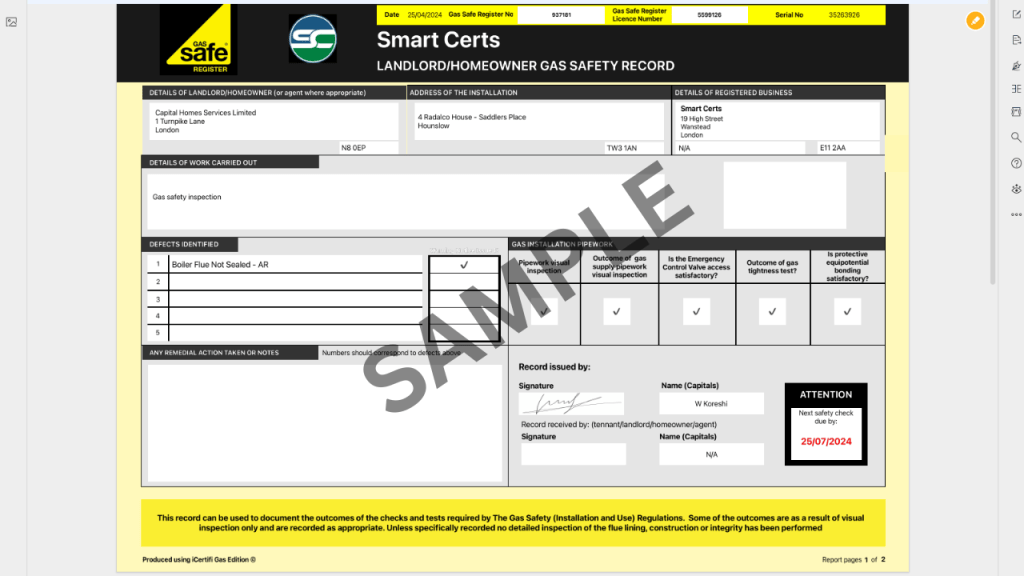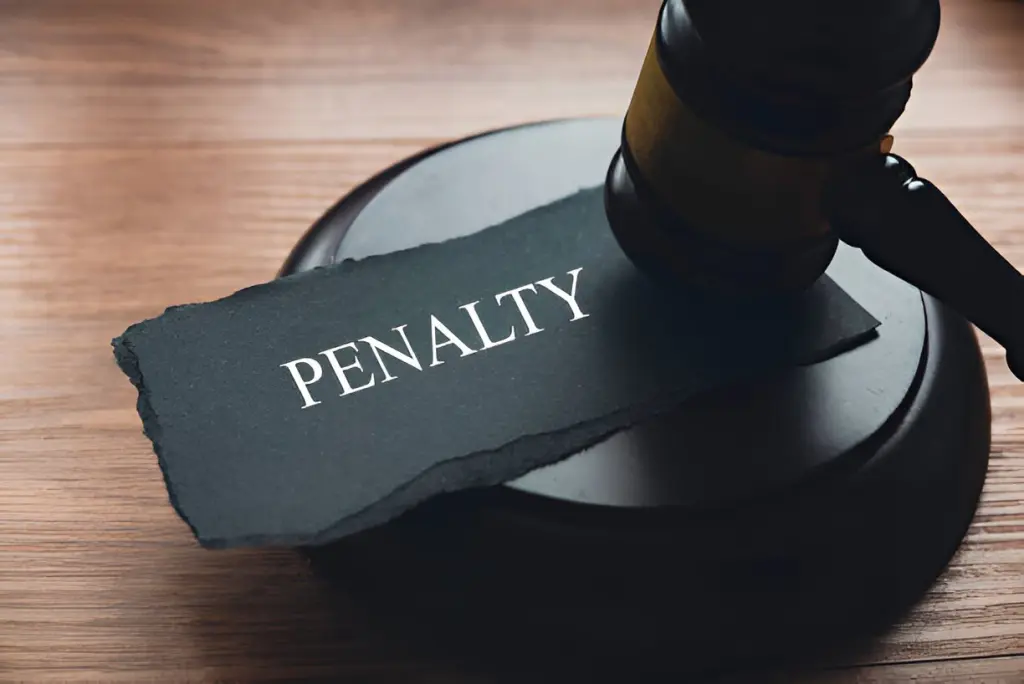Despite being as old as the hills, the importance of a Gas Safety Certificate remains paramount in our modern world. As a Gas Safe registered engineer, I’ve seen first-hand how perplexing this document can be to folks who aren’t in the industry.
It’s more than a simple checklist; it’s a detailed record of the health of your gas systems. But what does one actually look like, and what information does it contain?
Stick with me, and we’ll unravel this mystery together, as understanding this document is crucial to ensuring the safety of your property.
Gas Safety Certificate Content
A Gas Safety Certificate is a crucial document that contains vital information such as the name and contact details of the Gas Safe registered engineer or company, the engineer’s name, registration number, and contact information, as well as the date of inspection and certificate expiration date.

This certificate serves as an inspection checklist that adheres to safety regulations. It includes a record of appliance maintenance, details of engineer qualifications, and safety recommendations. It’s a comprehensive report of your gas appliances, indicating whether they meet the required safety standards.
It’s not just a piece of paper; it’s proof of your commitment to safety. Understanding its content is essential for mastery over your property’s gas safety.
Landlord Gas Safety Certificate Requirements
As a landlord, it’s crucial to understand that you’re legally obligated to obtain a Gas Safety Certificate annually, ensuring all gas appliances, pipework, and flues provided for tenants are safe to use. This is part of your landlord responsibilities and essential for safety compliance.
Here’s a brief overview of what to consider:
| Landlord Responsibilities | Importance |
|---|---|
| Annual Inspection | Ensures gas system maintenance and safety compliance |
| Safety Certificate | Mandatory to validate tenant well-being |
| Gas Maintenance | Prevents gas-related accidents |
| Legal Requirements | Avoidance of hefty fines |
| Tenant Communication | Transparency and trust-building |
Gas Safety Record and Maintenance
Maintaining a thorough Gas Safety Record is key for landlords, as it not only ensures the safety of tenants but also proves compliance with legal regulations. This record is issued post safety check and encapsulates all the checks performed. It’s mandatory to hand over a copy to the tenant within 28 days.
Maintenance Tips include ensuring that gas pipework, appliances, and flues are kept in a safe condition. Regular servicing, preferably annually by a Gas Safe engineer, is highly recommended. Landlords should keep these records for at least two years.
Compliance Documentation
To ensure adherence to gas safety regulations, landlords must maintain comprehensive compliance documentation. These documents detail the entirety of the gas safety inspection process, from initial checks to final assessments. They serve as tangible evidence of the landlord’s responsibilities being met promptly and thoroughly.
The importance of annual checks can’t be overstated. Regular inspections are key to identifying potential risks and taking preventive measures. Through these assessments, landlords can glean valuable gas appliance maintenance tips to keep their properties safe.
Compliance documentation details not only the safety status of each appliance but also the steps taken to rectify any uncovered issues. By keeping these records up-to-date, landlords demonstrate their commitment to safety and adherence to regulatory standards.
Legal Obligations and Penalties
In the world of property management, abiding by legal obligations for gas safety is non-negotiable, and failure to comply can attract severe penalties. Annual inspection by a certified professional is mandatory, serving as critical compliance evidence. If you fail to meet these obligations, penalty consequences can be severe, with criminal charges possible for non-compliance.

It’s not just about avoiding punishment; it’s about tenant protection. Ensuring gas appliances are safe is a vital part of providing a secure living environment. Remember, a Gas Safety Certificate is more than a piece of paper; it’s a testament to your commitment to safety. Don’t take risks; the repercussions can be costly and damaging.
Property Transaction Information
When you’re dealing with property transactions, understanding the key elements involved is crucial. Firstly, achieving a proper property valuation is essential to set a baseline for price negotiations. This valuation provides a realistic estimate of the property’s worth, which guides both the buyer and the seller.
Stamp duty, a tax on property purchases, is another important consideration. Its cost varies depending on the property’s value and should be factored into your budget.
The next stage is offer submission and price negotiation. It’s a delicate process that requires strategic interaction to reach a consensus. Once an offer is accepted, confirmation details are shared, including contract terms and closing dates. Remember, each step plays a vital role in ensuring a smooth and successful transaction.
Frequently Asked Questions
How Can I Verify the Authenticity of a Gas Safety Certificate?
I’d verify a Gas Safety Certificate’s authenticity by checking the engineer’s details against the Gas Safe Register. Certificate forgery has serious legal implications. Engineers play a key role, and note the certificate’s expiration date.
Who Should I Contact if I Suspect My Gas Appliances Are Not Safe Despite Having a Valid Gas Safety Certificate?
If I suspect my gas appliances aren’t safe despite a valid certificate, I’d immediately contact a Gas Safe registered engineer for inspection. I’d also report it to my landlord, as it’s their obligation to ensure gas safety.
What Happens if a Gas Safety Check Reveals That My Appliances Are Not Safe?
If a gas safety check reveals unsafe appliances, there are serious safety implications. Remedial measures are needed immediately, which may have cost implications. Insurance might be involved and there could be legal repercussions if ignored.
Can a Landlord Enter My Property to Conduct a Gas Safety Check Without My Permission?
As a tenant, I have rights. My landlord can’t enter my property for a gas safety check without notice. It’s a privacy breach if done without my permission, despite safety priorities and entry protocols.
Is There a Digital Version of the Gas Safety Certificate or Is It Only Available in a Physical Format?
Yes, there’s a digital version of the Gas Safety Certificate. This enhances digital accessibility, simplifies certificate storage, and allows for online verification. So, electronic certificates play a crucial role in safety digitization.
Conclusion
That’s it! We’ve broken down the Gas Safety Certificate, showing its importance for homeowners, landlords, and tenants alike.
Remember, it’s not just a document, but a guarantee of safety for everyone involved. Meet your legal obligations, maintain your appliances, and ensure every property transaction is compliant.
Understanding this certificate truly makes a difference. Stay safe and stay informed!









